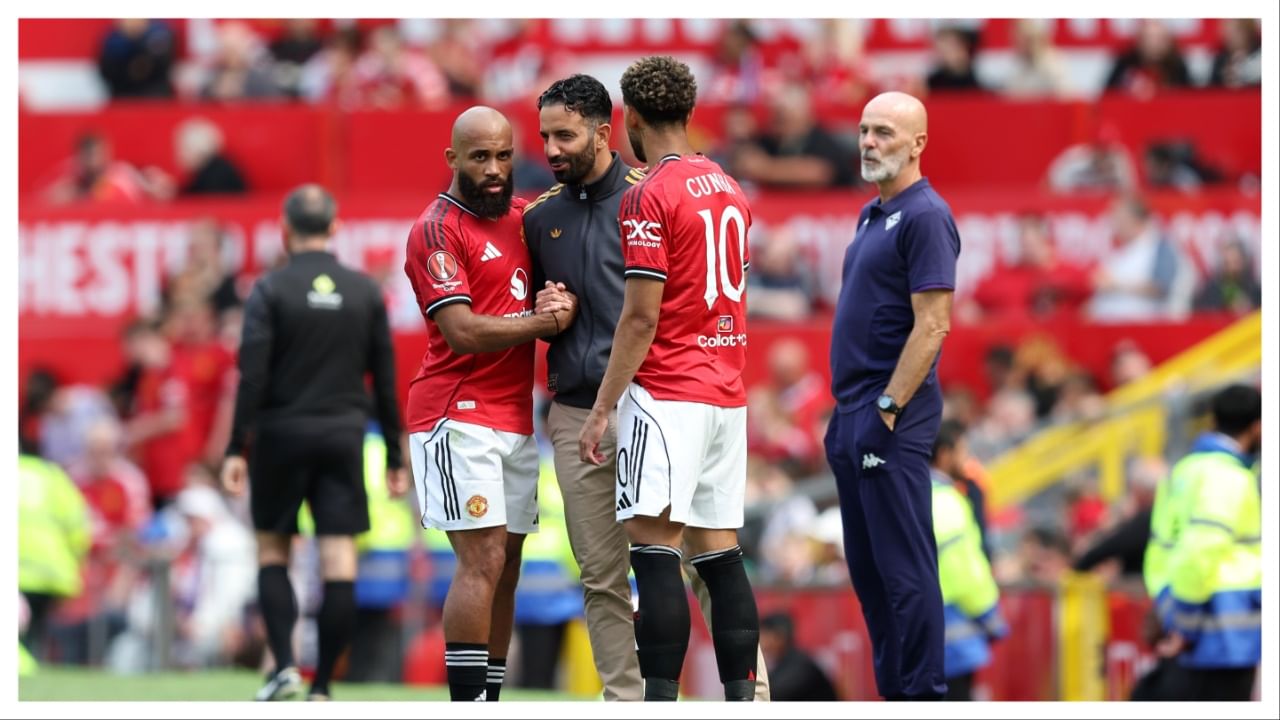New Delhi: Eighty-eight days on from the heartbreak of Bilbao, where Manchester United fell to Tottenham in the Europa League final, the mood around Old Trafford feels strangely upbeat. The 1-0 defeat capped off a wretched season in which United slumped to 15th in the Premier League, marking their lowest finish since the competition began. Yet as the new campaign kicks off against Arsenal, there is an unexpected sense of cautious optimism.
Three big-money signings, an unbeaten pre-season and the unveiling of a newly refurbished Carrington training ground have combined to change the atmosphere. Where once pessimism reigned, a summer of change has created the belief that United might finally be edging out of the wilderness years.
Turning pessimism into optimism
In just two months, the picture has completely shifted. What looked like another chapter in the club’s decline has been replaced by a sense of togetherness. In his first full season in charge, Ruben Amorim has overseen a summer clear-out, moving on players unwilling to buy into his vision. Marcus Rashford has gone on loan to Barcelona, Alejandro Garnacho is close to joining Chelsea, and other players are also being moved out.
The message is clear that those not on board with the collective project will be moved aside. After years of mediocrity and excuses, the disastrous 2024-25 season may have been the wake-up call the club needed. United hit rock bottom, and in doing so, rediscovered the urgency to reinvent themselves.
Rebuilt frontline
Amorim’s biggest bet is on his new-look attack. Bayern Mbeumo, signed from Brentford for £70 million, brings proven Premier League goals after a 20-goal season. Matheus Cunha cost another £62.5m and adds flair and unpredictability in the No. 10 role.
The headline signing, though, is Benjamin Sesko. At 22, the Slovenian striker arrived from RB Leipzig for more than £70m, charged with solving United’s long-running centre-forward problem.
It’s a gamble. The club burned money on strikers before, from Rasmus Hojlund to Joshua Zirkzee, but Amorim believes Sesko’s blend of athleticism and instinct will be the difference. The fans who have starved of goals last season will hope he is right.
Cultural reset
Amorim has got the so-called ‘bomb squad’ Marcus Rashford, Alejandro Garnacho, Antony, Jadon Sancho and Tyrrell Malacia out of the system, highlighting a cultural reset at the club. He wants fighters, not passengers in his squad. His 3-4-3 formation demands tactical discipline, defensive aggression and unity which means even senior internationals have been told they don’t feature in the long-term plan.
This shake-up is more than tactical: it’s symbolic. United have now tolerated inconsistency and underachievement over the years and will look to bring back the discipline that existed at the time of Sir Alex Ferguson. Amorim and the management has made it clear that mediocrity will no longer be accepted. In the words of Mason Mount on pre-season tour, the focus is simply on we want to be back in Europe.
Challenges that remain unresolved
Not everything has been solved. The misfield still look fragile with Amorim still chasing Brighton’s Carlos Baleba to bring steel and ball possession. Bruno Fernandes will be asked to play deeper, a role that might expose United when he drifts forward. The 33-year-old Casemiro still remains a key presence but can no longer cover the ground he once used to.
The path forward
Amorim talks about staying at United for 20 years. This might sound fanciful but his first but his first summer has already shifted the tone. The supporters after more than a decade of false dawns, want to see signs of progress. More over a team that competes, fights that at the very least looks like it belongs in the European place.
The club’s financial planning suggests Europa League qualification is the short-term goal with Champions League football by 2027. That may sound modest for Manchester United, but it’s realistic. After so many false restarts, the rebuild cannot be judged on one game or even one season.
The club’s financial planning suggests Europa League qualification is the short-term goal with Champions League football by 2027. That may sound modest for Manchester United, but it’s realistic. After so many false restarts, the rebuild cannot be judged on one game or even one season.
What’s different this time is that Amorim has been given freedom to reshape both squad and culture. United are no longer clinging to fading stars or papering over cracks. Instead, they are building a team around energy, youth, and a shared purpose.
After more than a decade of disappointment, the question is whether this is truly the corner being turned. The pieces seem in place with new signings, a new spirit and a manager with a clear idea. Now it’s down to the players to prove that last season’s humiliation was not the end, but the beginning of something better.
